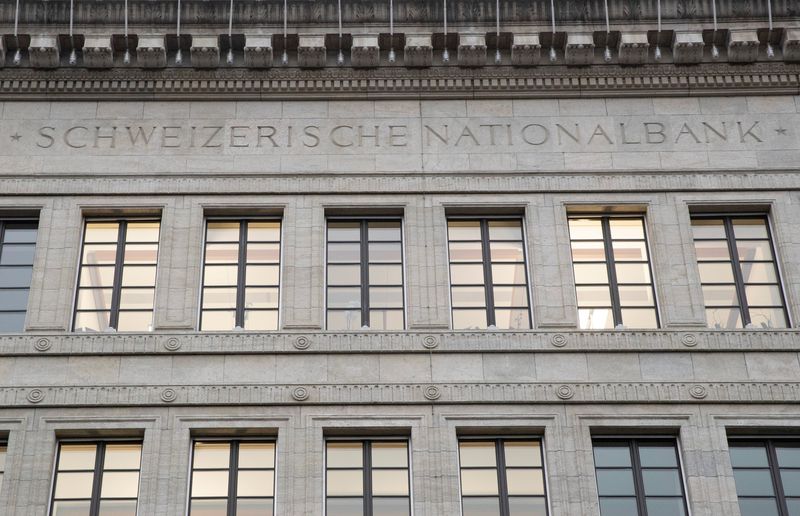ZURICH (Reuters) -The Swiss National Bank will tighten monetary policy if inflation in Switzerland remains persistently high, governing board member Andrea Maechler said in an interview published on Monday.
The European Central Bank on Monday became the latest institution to signal it was hiking rates to combat soaring inflation, following similar moves by the U.S. Federal Reserve and the Bank of England.
The SNB could follow suit, should Swiss inflation remain outside its target range 0-2%. April saw the highest inflation rate in Switzerland for 14 years, with prices rising by 2.5%.
"If the inflation we expect does not come down in the medium term to a range between 0% and 2%, we will not hesitate to tighten policy," Maechler told Swiss newspaper Bilan.
The SNB now has the world's lowest interest rate of minus 0.75% which along with its readiness to intervene in the currency markets has been the basis of its monetary policy over the last seven years.
The SNB's response to higher inflation "will depend on both inflation dynamics and the economic outlook in Switzerland and abroad", Maechler said.
"We have always said, as soon as we will be able to lift the negative interest rate, we will. We do not know however when we will be able to do so."
Maechler declined to say whether the SNB would follow any interest rate hike by the ECB in July.
"Our goal is to conduct a monetary policy that is appropriate for the Swiss economy to ensure price stability in the medium term," she told the newspaper.
Maechler said the SNB did not have a target value for the Swiss franc exchange rate, while higher inflation abroad meant a nominally stronger franc could be tolerated without damaging the economy.
